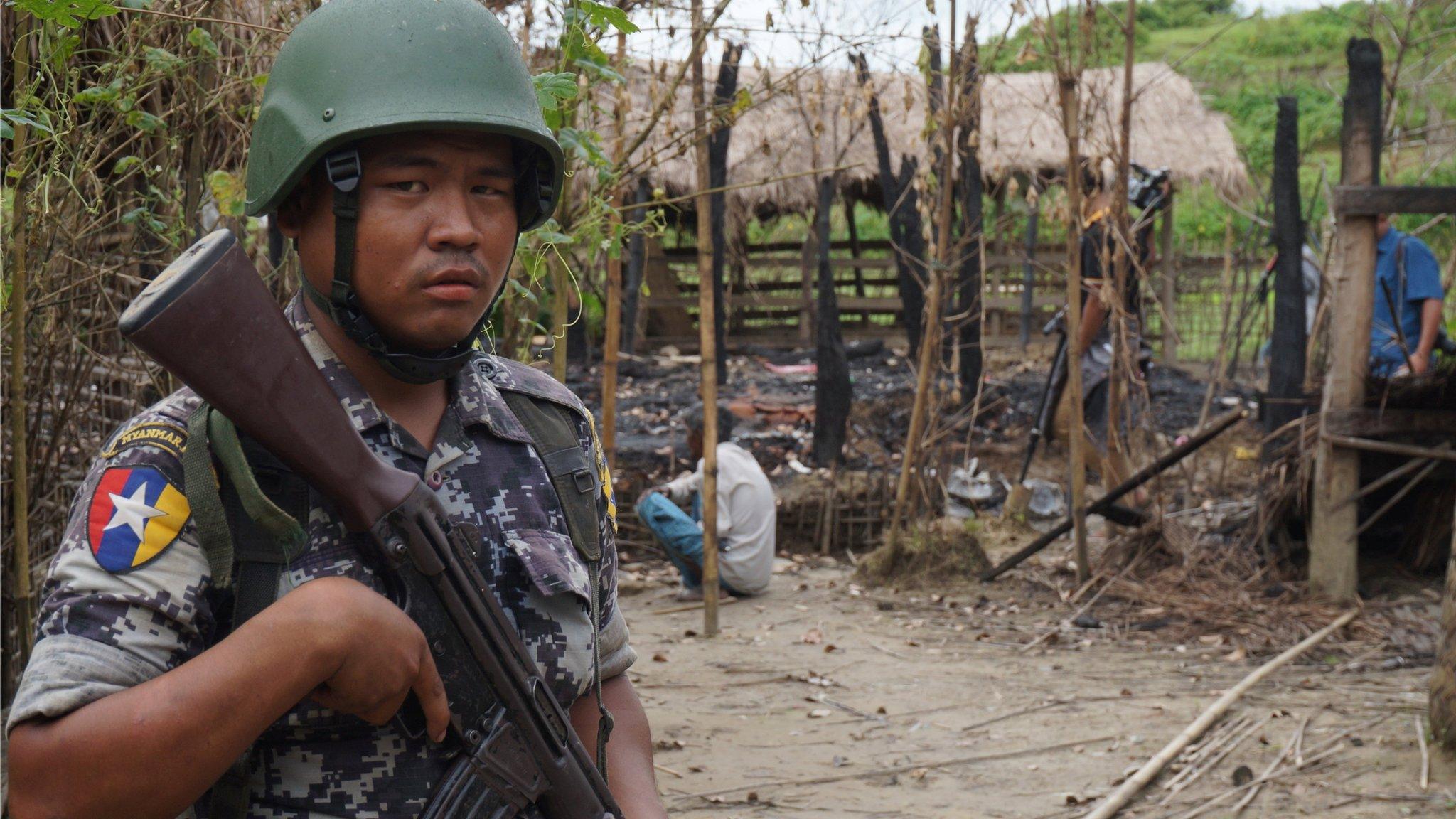Myanmar Rakhine: Rohingya refugees drown as exodus mounts
- Published
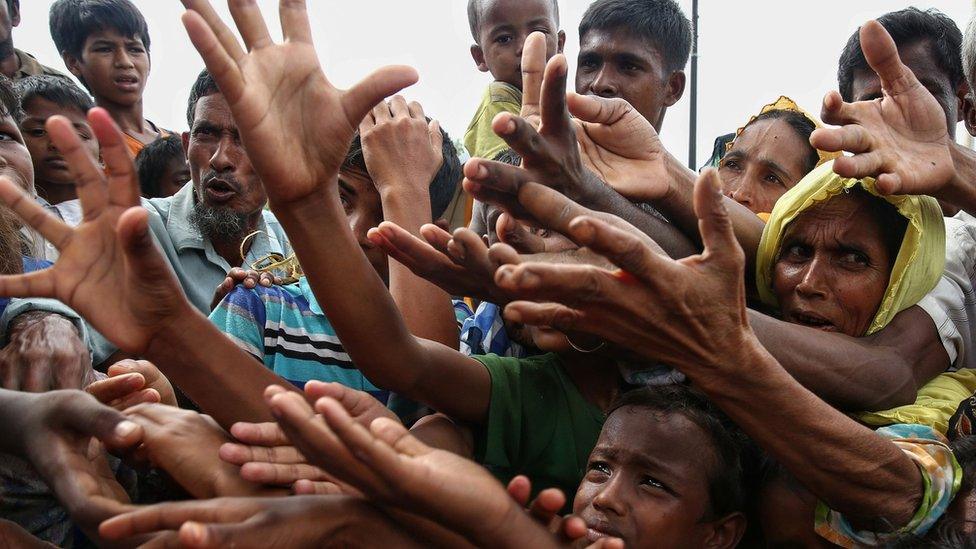
Aid workers say many of those on the border are in a desperate condition
Bangladesh coast guards have found the bodies of 20 people who drowned fleeing Myanmar, amid a rising exodus from Rakhine state.
The group, mostly women and children from the Rohingya minority, were trying to escape a recent surge of violence.
The crisis erupted after Rohingya rebels attacked 30 police stations last Friday, triggering a military response.
More than 100 people, mostly insurgents, have been killed and more than 27,000 Rohingya Muslims have fled.
Authorities in Bangladesh have warned that people are becoming increasingly desperate and attempting to escape by boat.
Rohingya Muslim women have been weeping on the Bangladesh border
A coast guard official told AFP news agency the migrants were trying to flee on "rickety inland fishing boats" poorly equipped for the rough seas around Bangladesh.
The authorities in Bangladesh - which already hosts hundreds of thousands of refugees from Myanmar - have been sending many back.
The UN in Bangladesh said on Thursday that some 27,400 were estimated to have crossed the border since Friday, up from 18,000 a day earlier.
Thousands more people are thought to be trapped in an unoccupied zone between the countries.
Aid workers giving emergency shelter and food in Bangladesh said the refugees were in a "very desperate condition".
"People are traumatised," said Sanjukta Sahany of the International Organization for Migration (IOM). Some of the new arrivals had recent bullet wounds, aid workers said.

What is happening in Rakhine?
Rakhine, the poorest region in Myanmar (also called Burma), is home to more than a million Rohingya.
The Rohingya have faced decades of persecution in Buddhist-majority Myanmar, where they are not considered citizens. There have been waves of deadly violence in recent years.
The current upsurge is the most significant since October 2016, when nine policemen died in attacks on border posts.
The violence comes just days after an international commission led by former UN chief Kofi Annan warned of more radicalisation if ethnic tensions were not addressed.
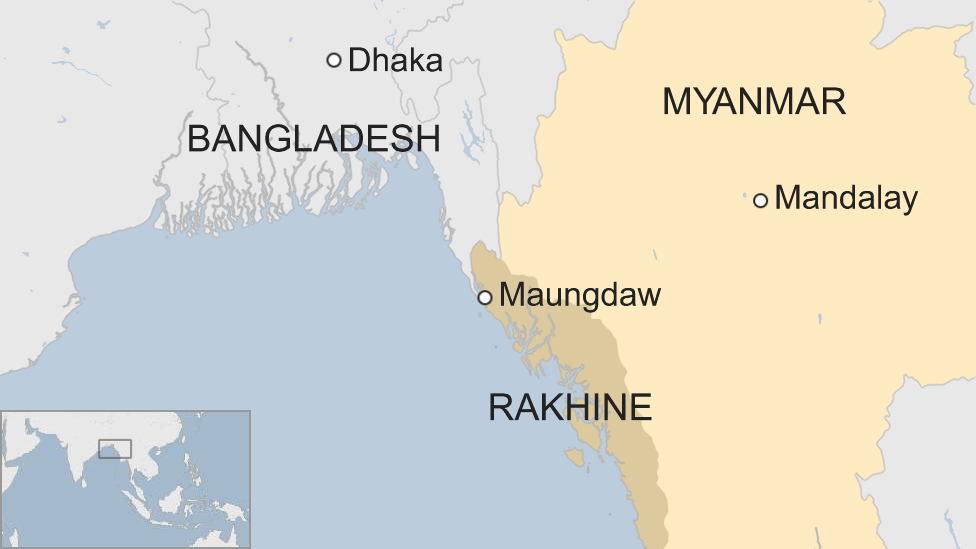
Refugees arriving in Bangladesh accuse the military in Myanmar of raiding villages and burning down houses.
With media access to Rakhine severely restricted, casualties are difficult to verify.
An AFP journalist on a government-led trip to the province said he had seen plumes of smoke rising from several burning villages.
The government accused the militants for burning houses before fleeing to the mountains.

What is it like for the refugees?
By Mir Sabbir, BBC News, Cox's Bazar in Bangladesh
Along the main road in front of Kutupalong refugee camp, hundreds of Rohingya gather in small groups under the open sky. The vast majority are women and children.
These people crossed the border under the cover of darkness, walked a long way or took an auto-rickshaw if they could afford one, and reached this camp. They know that if they are caught during the crossing, they will be sent back.
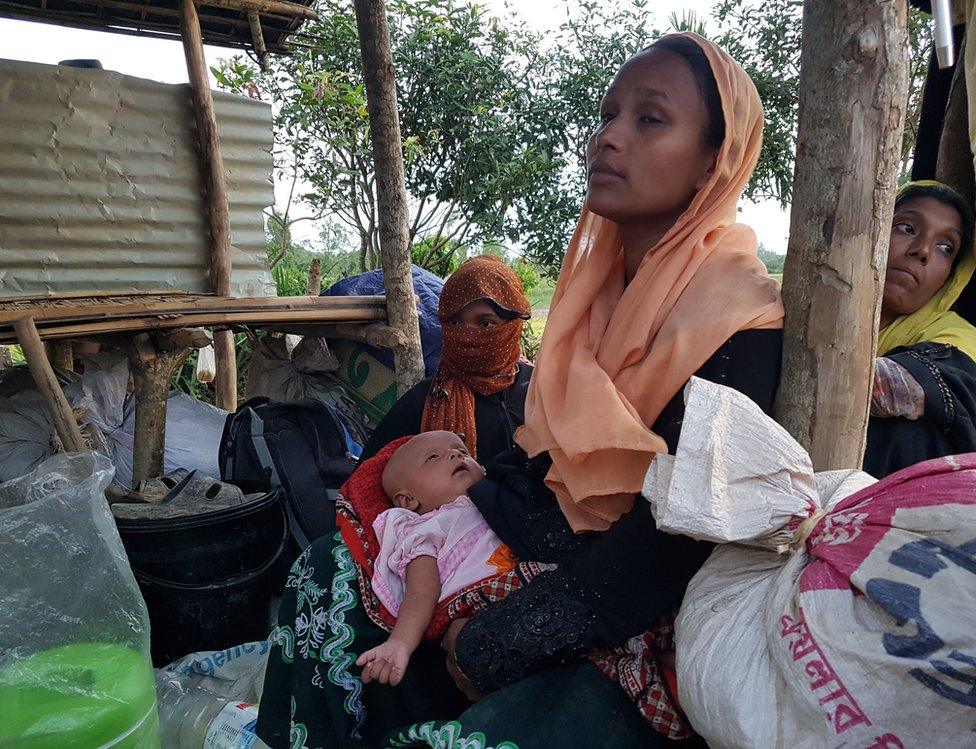
This woman had to wait at the border for three days
But even after being turned away, they just keep trying again. Some say there is nothing left for them at home. Many of them have lost their family members.
Many of the Rohingya crossing the border already have relatives in these camps. With their help, these people will probably also get some shelter here.
But looking at children in the refugee camps - exhausted by the long journey, confused about why they had to come here and suddenly living under the open sky - it's hard not to get emotional.

Who are the militants?
A group called the Arakan Rohingya Salvation Army (Arsa) has said it carried out the attacks on police.
The group first emerged in October 2016, when it carried out similar assaults.
Those attacks triggered a military crackdown that led to widespread allegations of killings, rape and torture of Rohingya, and an exodus into Bangladesh.
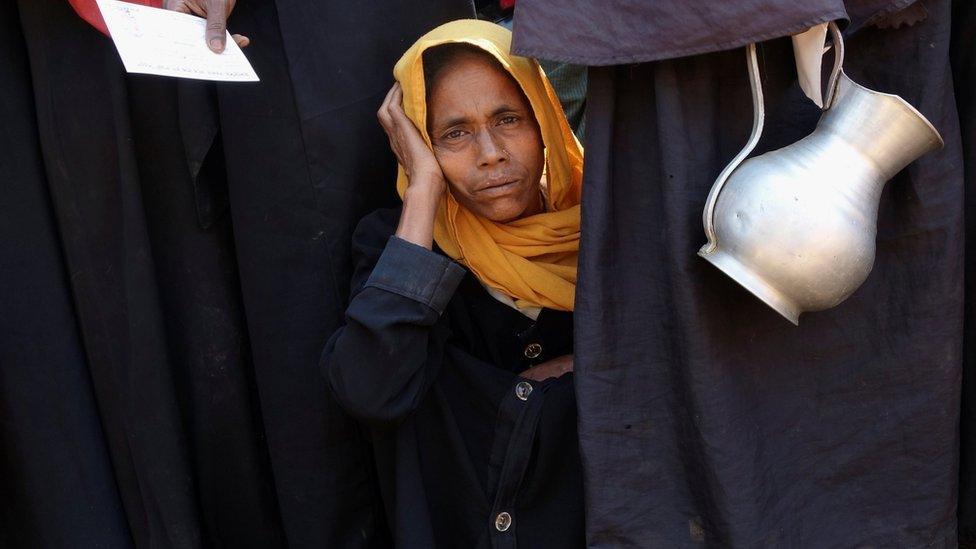
Tens of thousands of Rohingya Muslims have fled to Bangladesh
The UN is investigating alleged human rights abuses by the security forces, who deny wrongdoing.
Arsa says its primary aim is to protect the Rohingya Muslim minority from state repression.
Myanmar earlier in the week changed from using the term "extremist Bengali terrorists" to using "Arsa extremist terrorists" in referring to the insurgents.
The government claims the group's leaders have been trained abroad. Its head is Ata Ullah, a Rohingya born in Pakistan who was raised in Saudi Arabia, according to the International Crisis Group, external think tank.
But a spokesman for the group told Asia Times, external that it had no links to jihadi groups and that its members were young Rohingya people angered by events since communal violence in 2012.
- Published30 August 2017
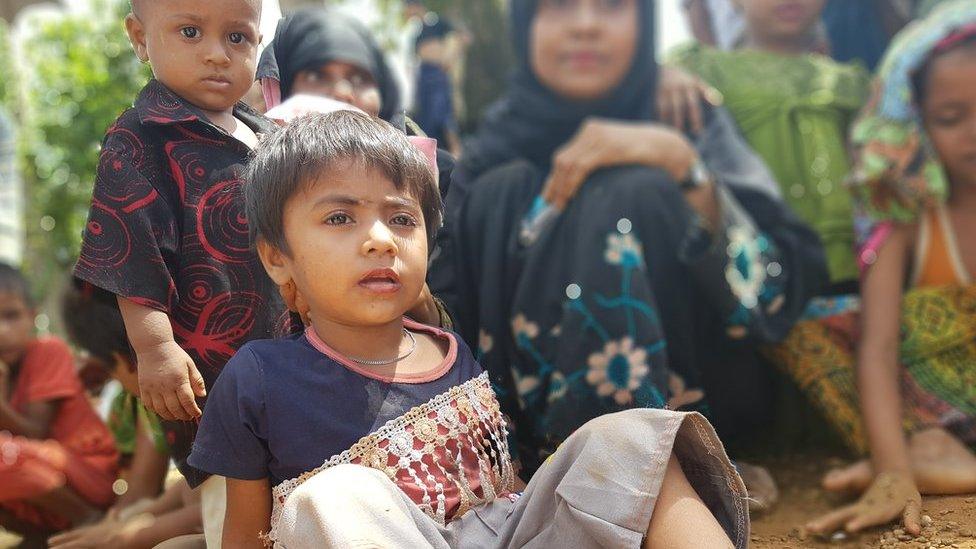
- Published19 September 2017
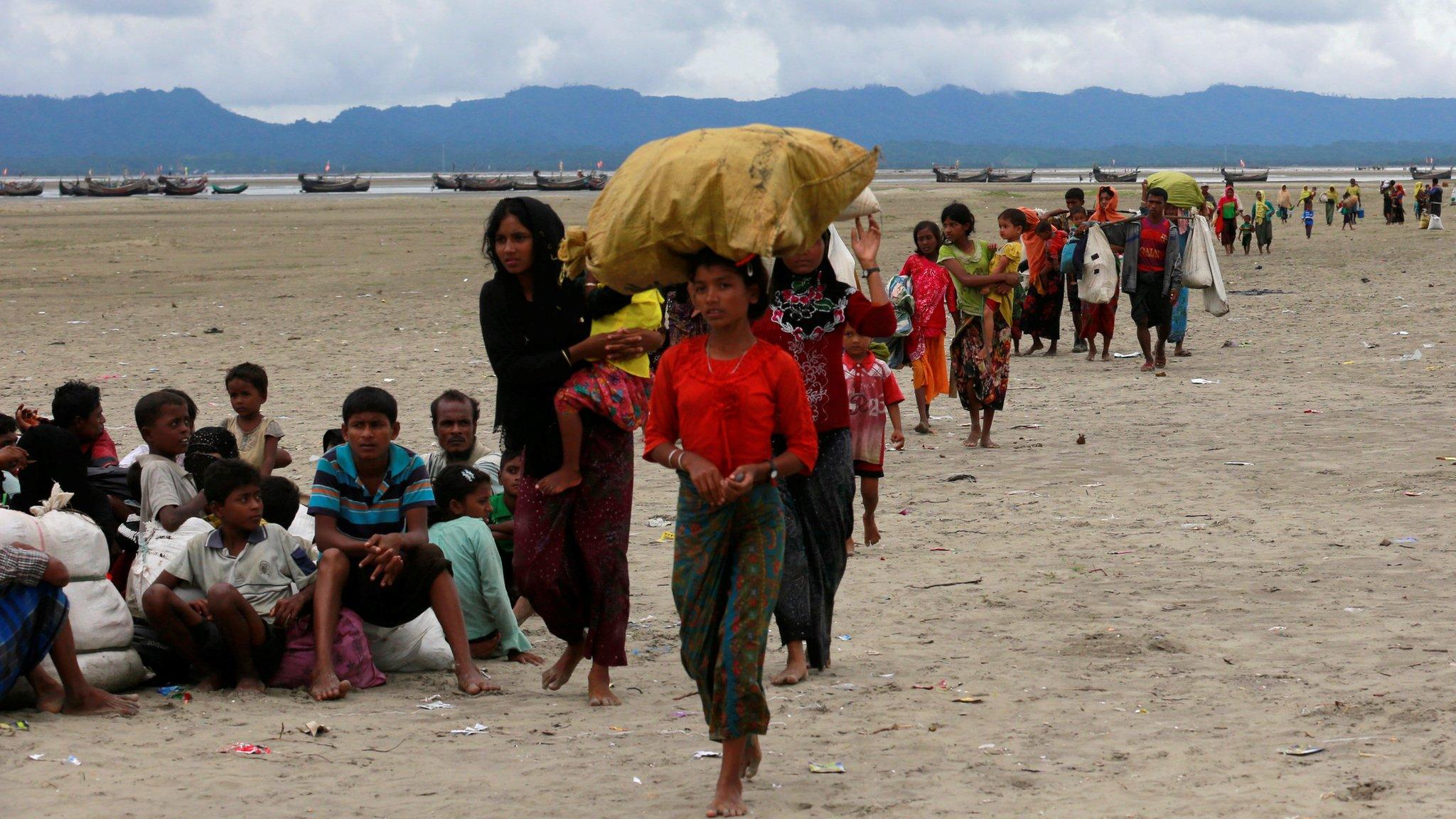
- Published24 August 2017
